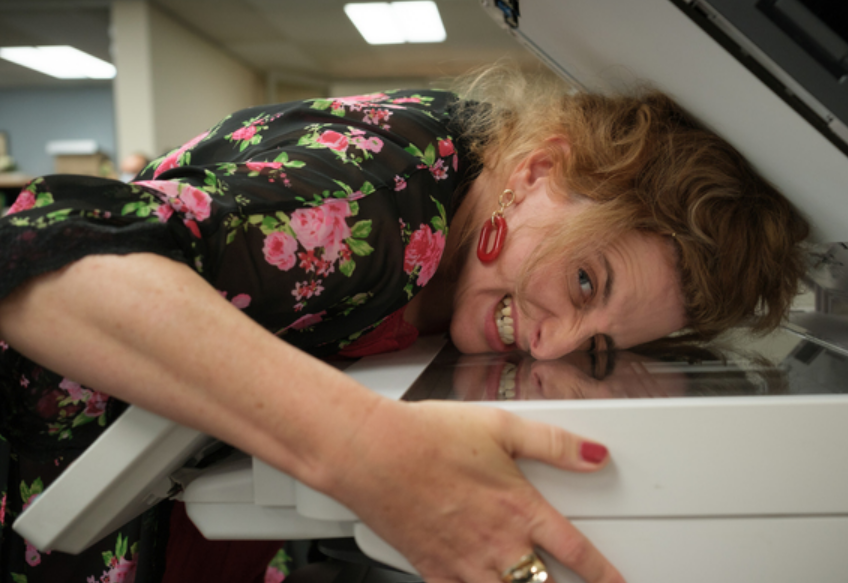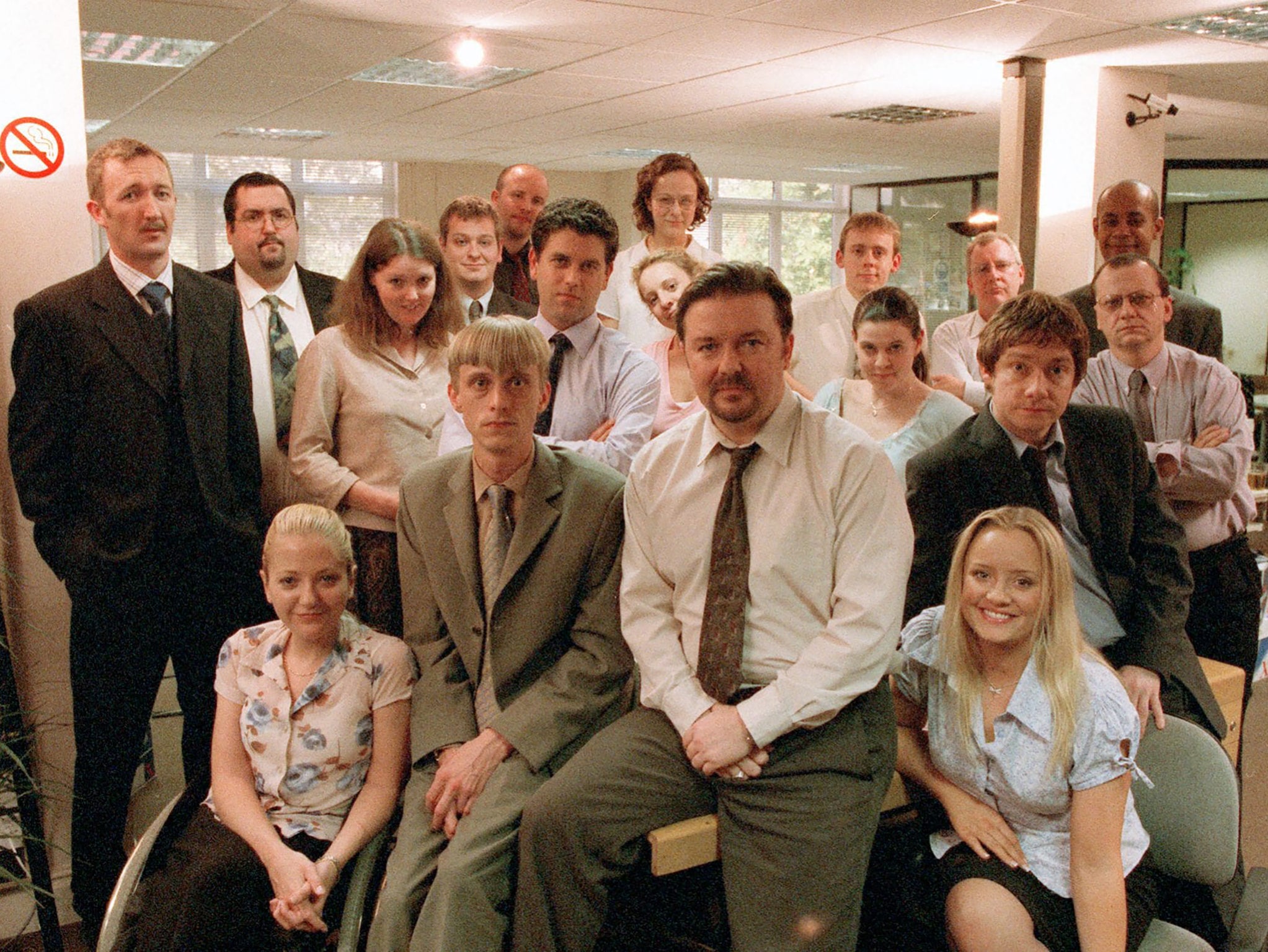The Office was poisoned by the US remake – Australia never stood a chance
Louis Chilton argues that this new reboot of the mockumentary will never reach the heights of the British version, an era-defining work of comedy and a masterclass in sharp-edged, cringe-based realism
Your support helps us to tell the story
From reproductive rights to climate change to Big Tech, The Independent is on the ground when the story is developing. Whether it's investigating the financials of Elon Musk's pro-Trump PAC or producing our latest documentary, 'The A Word', which shines a light on the American women fighting for reproductive rights, we know how important it is to parse out the facts from the messaging.
At such a critical moment in US history, we need reporters on the ground. Your donation allows us to keep sending journalists to speak to both sides of the story.
The Independent is trusted by Americans across the entire political spectrum. And unlike many other quality news outlets, we choose not to lock Americans out of our reporting and analysis with paywalls. We believe quality journalism should be available to everyone, paid for by those who can afford it.
Your support makes all the difference.What do we stand to gain from another remake of The Office? In the 21 years since Ricky Gervais and Stephen Merchant’s seminal cringe comedy first aired on British television, it has never really left, hanging around the TV landscape like a boozy straggler at an office Christmas party. It’s been remade more than a dozen times around the globe; a new Australian remake, out today on Prime Video, represents the third English-language iteration of The Office, following on from the long-running, phenomenally popular US version.
Fans of either the British or American Office will immediately recognise the formula here. Felicity Ward is Hannah Howard, an obnoxious, socially oblivious office manager in the mould of Gervais’s David Brent, or Steve Carell’s Michael Scott. Edith Poor is her gauche underling Lizzie (the Gareth Keenan/Dwight Schrute figure). Steen Raskopoulos and Shari Sebbens are Nick and Greta, the Aussie Office’s Tim/Jim and Dawn/Pam – two affable workers whose flirtatious banter forms the basis of the series’ big Will They/Won’t They? Except, of course, we know from the off that they will – we’ve seen this story play out twice before.
The problem with the Australian Office isn’t just that it’s derivative. If it were simply apeing the BBC original, that would be one thing. But this new Office is a copy of a copy, one that drinks too greedily from the American well, while ignoring what made the UK Office such an era-defining work of comedy in the first place.
If the US Office started out as a relatively faithful retread of the British version, it quickly morphed into something distinct. Gone was the sharp-edged, cringe-based realism of Gervais; in its stead was something softer, broader and more marketable. Michael Scott was gaffe-prone, sure, but he wasn’t pitiful – outright dismal, even – in the way that David Brent was. There was an air of exaggeration to it – an air that similarly pervades every facet of the Australian version. The storylines, the performances, the jokes: everything is just slightly too big. Would a sensitivity consultant really just show up one day, catching Hannah by surprise? Would Poor’s character really attempt to sell all the office’s chairs on the internet? It’s all just a little too contrived. And with a premise like this, even a slight whiff of contrivance is enough to overpower.
The real genius of the original Office lay in its staunch adherence to plausibility. Brent is a big, bolshy creation, but the in-world responses to him are almost eerily credible. The scenarios were always drab and unspectacular – a pub quiz; a training day; a red nose day fundraiser. Office life is never depicted as anything other than bleak and tedious. Until the final throes of the climactic Christmas special, there is absolutely no attempt to uplift. The US one, by contrast, argues that there is, underneath it all, fun to be had. The UK Office offered uncomfortable relatability, while the American one offered fantasy (albeit a mild and unspectacular fantasy at that). It’s not necessarily worse – there are plenty of people out there who would say the American Office is the superior iteration. But it’s less incisive by design.
In this latest incarnation of The Office, the big twist in the formula is the gender-flipped casting of its central character. There’s something quintessentially male about the pathetic posturing of Brent; here, it’s been replaced with another kind of bluster, a sort of girlboss-inflected smugness that, it should be said, Ward excels at. “Promoting women into positions of power… that’s my mantra, really,” she speciously boasts in one scene. There’s plenty of knowingly poor-taste humour, with Ward’s Hannah lurching from faux pas to faux pas, albeit all a little cartoonish in the execution.

There is a reason that even now, decades after the UK Office went off the air, David Brent impressions are still ten-a-penny; there’s a reason “David Brent impersonator” is still a viable career path for those with the will and the right goatee. Gervais and Merchant had the confidence to make a programme that was distinctive, specific, and – significantly – British to its core. People outside of the UK are unlikely to understand, for instance, why Brent reeling off particular place names (“Reading, Aldershot, Bracknell … Didcot. Yateley. Winnersh. Taplow”) would be so funny, so endlessly quoted by Office diehards. The US Office was averse to this kind of specificity, favouring instead a sort of genericised vision of small-town America. (It’s telling, perhaps, how few of Michael Scott’s quotes have entered the fandom’s lexicon in the way that Brent’s have, despite giving them much more material to work with.)
In this regard too, the Aussie version seems modelled after the US one: in the three episodes made available to critics ahead of time, there is little about it that feels idiosyncratically Australian. If you go into the series wondering how exactly Australian workplaces differ from those overseas, you’ll leave wholly unenlightened. The original Office offered a real flavour of what life is like in a Slough paper merchants; the Australian Office only really offers a sense of what it would be like if a bunch of Aussie comedy writers were fans of The Office.

It’s a shame, because the premise of The Office is as malleable as any. There’s not really any reason why the series needs to have such transparent copies of its past characters, either. Why not put a twist on the formula? Make the Nick/Jim/Tim character a scheming careerist. And Lizzie/Dwight/Gareth a sympathetic foil. There are an infinite number of possible scenarios you could dream up within the “sitcom in an office” format, and yet still we hew to the same brittle framework.
But this is to be expected. The Australian Office is, like its US forebear, a series engineered to please, and the received wisdom of remakes dictates that there’s nothing more pleasing than familiarity. But that’s the problem: the original Office was never concerned with pleasing anybody – it was squirms and sickly laughter at all costs. Can this new rendition really say the same?
Join our commenting forum
Join thought-provoking conversations, follow other Independent readers and see their replies
Comments